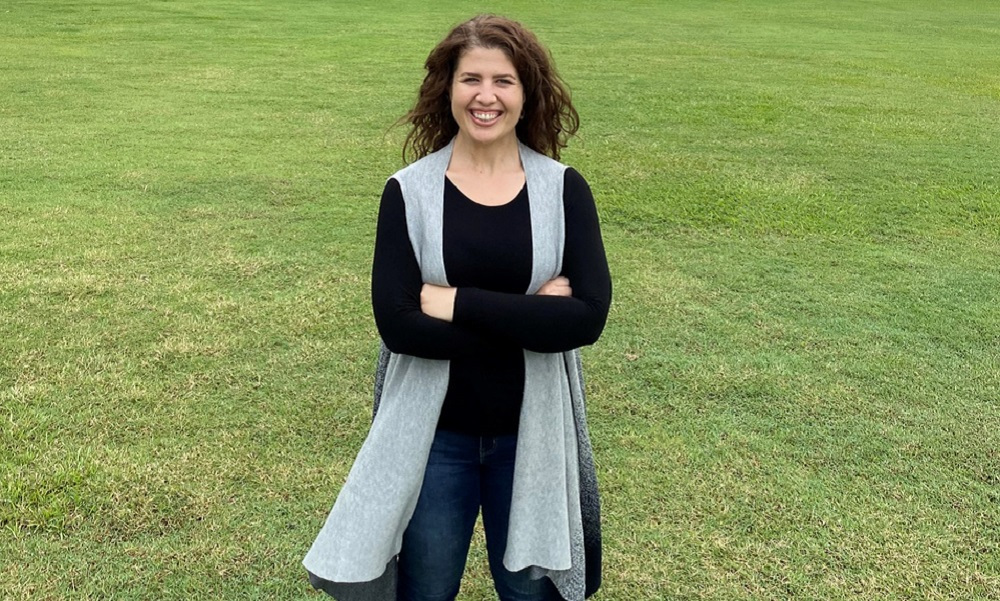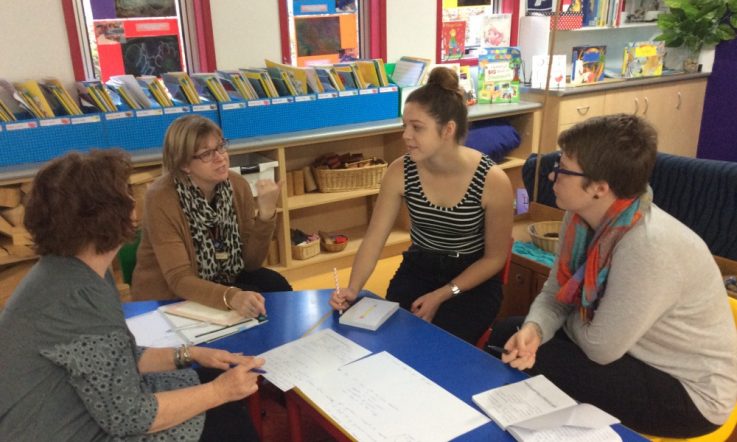Many experienced teachers will have had to draw on their wealth of expertise and knowledge of good classroom practice to navigate the move to remote teaching and learning during the COVID-19 pandemic.
But for beginner teachers like Savannah Epskamp, starting a teaching career in the middle of the pandemic and having to deliver lessons remotely for the first time, is a whole unique challenge in itself.
Epskamp accepted her first teaching role at Christ the King Catholic Primary School in Deception Bay, Queensland, at the beginning of May, at a time when most of her Year 5 students were learning remotely.
‘While there have been challenges and there's a lot to learn, I'm obviously so green in the world of having my own classroom, but you just get on with it and go with the flow. Being flexible was what they taught us at university, and that has been so true,' she tells Teacher.
Team teaching and sharing expertise
Over the past five weeks, Epskamp has been team teaching a Year 5 class two days a week, but from Term 3 she will be teaching the class full-time. She says she's really enjoyed the experience of working with the two other Year 5 teachers to prepare lessons and share resources.
‘The other two are quite experienced teachers and they've been able to really help me with everything,' she says. The teachers plan their units of work together, share resources and keep connected by checking-in with each other via phone and email.
For the first five weeks of term, Epskamp says roughly 10 children from families of essential workers were physically coming into school each day, while at the same time, the other students were receiving their lesson materials via Microsoft Teams.
‘We would set the work for all the students and all the students were doing the same thing in the same way – they use their iPad or their computer – it's just that some of them are doing it in the classroom and some of them are doing it at home,' she says.
And while Epskamp has confidence in her own use of technology and ICT, she says teaching students remotely was not something that was covered in her university degree.
‘There were definitely units that we covered for ICT which have absolutely come in handy but the actual scenario of teaching students remotely, not being in front of them face-to-face in the classroom, was not a concept that we discussed.'
A return to face-to-face teaching
In Queensland this week, all 23 students from her grade have returned to face-to-face teaching in the classroom, which Epskamp says she's very much been looking forward to. She says she's going to approach her lessons as if it's the first week of term, to establish routines and expectations.
‘They've had five weeks at home, they've been able to have a lot more freedom and they're going to have to re-learn all the routines and the expectations and also obviously a big thing for me is building the relationships,' she shares. ‘So for me, it's a bit like week one, Term 1, in terms of building relationships with the students and getting to know them and establishing my expectations with them. And then at the same time trying to continue on with the learning, so it's going to be an interesting challenge.'
At this stage, Epskamp has met nearly all the students in her class, either in person or online, so is planning to build on these relationships now they're all back together in the classroom. ‘They're just lovely kids and they're just little kids, all they want is to feel safe and belong, and I've already started to build those relationships with most of them so it's really nice.'
A pathway into education
Prior to studying education, Epskamp worked in administrative roles for large corporations in her home state of Western Australia. She admits she was not very academically inclined as a school student, why is why she didn't have the confidence to pursue a career in education straight out of high school.
But after working in a Kindergarten and meeting other educators who encouraged her to pursue her dreams, she decided to enrol in a degree at Edith Cowan University. When she moved to Queensland in 2017, she transferred into the Bachelor of Education (Early Childhood) at the University of the Sunshine Coast (USC).
In her degree she achieved a grade point average of 6.48 out of a possible 7, and was awarded a USC Chancellor's Medal – the university's highest honour for a graduating student – for her high academic achievement and for her extensive contribution to the university and the broader community.
‘That was pretty life changing for me – that whole process of going through university – because I did have massive personal growth in terms of my own confidence and ability for learning,' she says. ‘I credit going to uni with developing a real love for learning as well, which is super important as a teacher because you are still learning. You're not going to stop learning.'
As an experienced teacher, how did you navigate the move to remote learning with your students? What were some key lessons you learned from the experience? Was there anything you found surprising?
As a beginner teacher, in what ways did you draw on the expertise of your colleagues in education to help you during this time? What was some of the advice you found useful? How has the experience impacted on your own practice?



